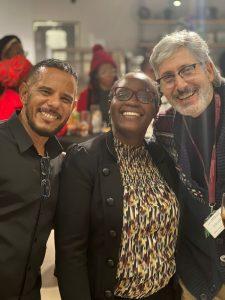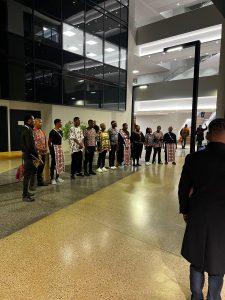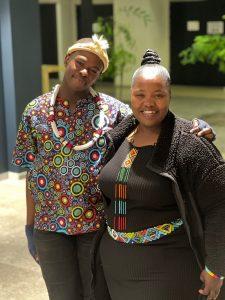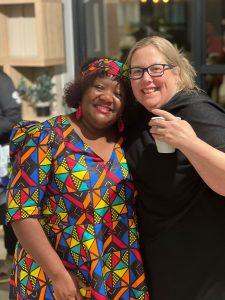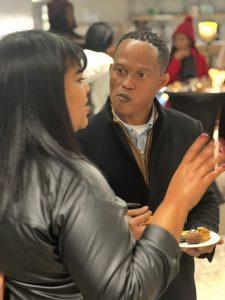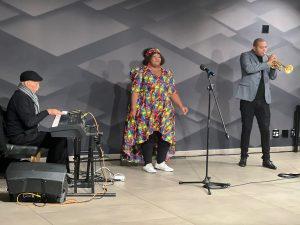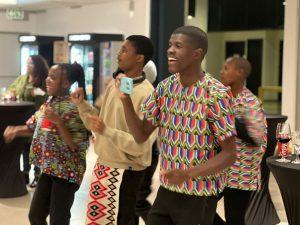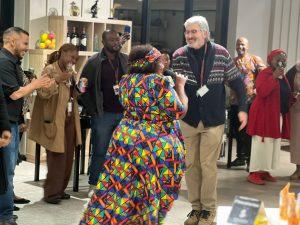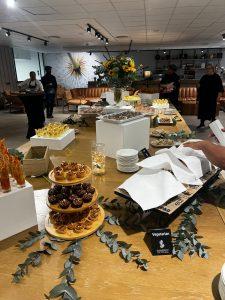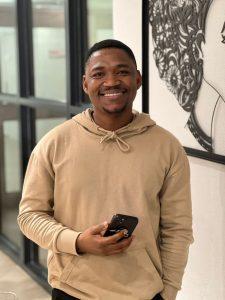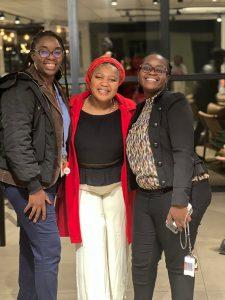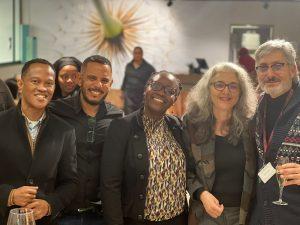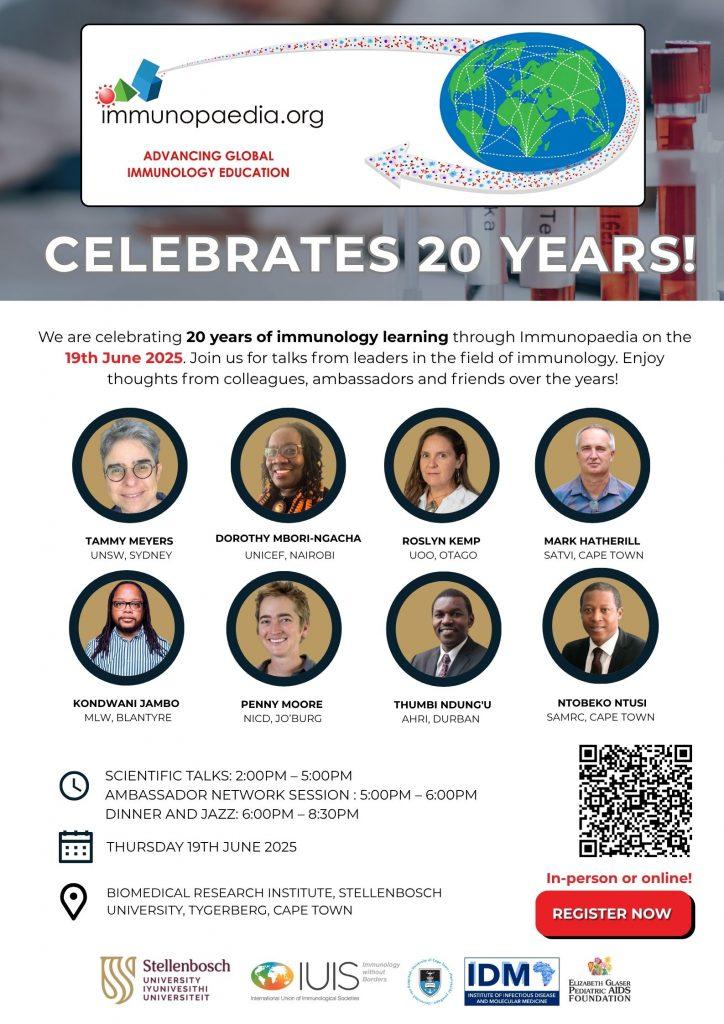Immunopaedia’s 20th Birthday Celebrations!
On 19 June 2025, we celebrated two decades of advancing immunology education through a vibrant hybrid Mini Symposium at Stellenbosch University, Cape Town.
Founded in 2005 by Professor Clive Gray, Immunopaedia has grown into a global platform. It was a joy to reflect on this journey with esteemed speakers from across Africa, the International Union of Immunological Societies (IUIS), and many familiar faces who’ve shaped our path. Our dedicated Ambassadors joined online for an inspiring dialogue on the future of immunology education, led by Professors Michelle Letarte and Dieter Kabelitz.
We also proudly launched the Immunopaedia Foundation NPC brand, shared in-person through our brand booklets, and debuted our dynamic new Immunopaedia video.
Recordings of all the lectures and session summaries by our dedicated Immunopaedia Ambassadors are available below.
Immunopaedia is truly fortunate to have made so many partnerships, colleagues, ambassadors and friends over 20 years.
We also held a celebration afterwards with delicious food and fantastic entertainment (photos below). The Amathunzi Youth Group sang, followed by poetry by Abueng (Junior) Ntsimane and jazz with Babalwa Mentjies on Vocals; George Werner on Piano; Muneeb Hermans on Trumpet. What a wonderful creative and joyous way to end a scientifically rigorous mini-symposium.
Thank you to everyone who celebrated with us, in-person and online. Here’s to the next chapter in equitable and accessible immunology education!
Senior Communications Officer
bon.holtak@immunopaedia.org.za
Immunopaedia Foundation NPC Video
Introduction – Elmi Muller, Dean, Faculty of Medicine & Health Sciences, Stellenbosch University and Clive Gray, Division of Immunology, Stellenbosch University, South Africa and Founder of Immunopaedia
The session opened with welcoming remarks from Professor Clive Gray, who shared a personal anecdote about the founding of Immunopaedia. He was inspired during a conversation in Keystone in 2003 and later received the International Leadership Award in 2004. He also reflected on Immunopaedia’s evolution from a modest concept to a globally recognised platform for immunology education. He humorously recounted how the name “Immunopaedia” was coined over pizza with his family.
Professor Elmi Muller then welcomed participants from around the world, emphasising the significance of Immunopaedia’s 20-year journey. She highlighted the platform’s role in connecting learners, researchers, and clinicians across disciplines and geographies. Stressing the relevance of immunology to modern medicine, including HIV, TB, COVID-19, cancer, and transplantation, she underscored its foundational role in clinical training. Professor Muller also recognised South African researchers for their global contributions and expressed hope for continued collaboration to advance the field even further.
(Rapporteur- Linda Djune)
Immunopaedia launch and collaboration – Tammy Meyers, University of New South Wales, Sydney, Australia.
The session continued with a pre-recorded message from Professor Tammy Meyers, introduced by Professor Clive Gray, who reflected on their early collaboration during the 2003 South African AIDS conference.
Professor Meyers, a paediatrician and HIV advocate, recounted her journey treating children with HIV from the 1990s through the global scale-up of antiretroviral treatment. She detailed the alarming rise of pediatric HIV cases in South Africa, her efforts to drive policy change, and the stigma faced by affected families. She credited the Elizabeth Glaser Pediatric AIDS Foundation for enabling early treatment programs, which eventually scaled to over 6,000 children. Highlighting her advocacy through the “Save Our Babies” campaign, she described a landmark Constitutional Court ruling that compelled national access to prevention and treatment.
Now based in Australia, Professor Meyers reflected on Immunopaedia’s founding spirit of global collaboration and celebrated its 20-year impact on immunological education and health equity.
(Rapporteur- Linda Djune)
Immunology and the intersection with Global Health Dorothy Mbori Ngacha, ex UNICEF, Nairobi, Kenya
Dr. Dorothy Mbori-Ngacha offered reflections on the evolving role of immunology in addressing global health challenges. She emphasised Immunopaedia’s unique position at the crossroads of science and international development, highlighting its potential to support immunological education for the next generation of scientists. Dr. Mbori-Ngacha also celebrated the initiative’s 20-year legacy and expressed pride in being associated with a platform that continues to foster learning and collaboration across regions. She touched on the historical links between immunology education and key figures such as Michelle Letarte (past chair of the IUIS EDU Committee). She proposed a deeper integration between Immunopaedia and the International Union of Immunological Societies (IUIS), particularly within African contexts. Her closing remarks envisioned a bright future for Immunopaedia, encouraging continued partnerships that promote equity in health knowledge and access to information.
(Rapporteur- Linda Djune)
Immunopaedia as a platform to support online learning – Roslyn Kemp, University of Otago, New Zealand and the IUIS EDU Committee
In her pre-recorded address, Professor Roslyn Kemp emphasised Immunopaedia’s evolving role in global immunology education. She outlined how the platform supports both hybrid and in-person training through compulsory pre-course modules focused on research, teaching, and science communication. Developed in collaboration with Immunopaedia Ambassadors, these materials ensure learners are well-prepared and that content remains inclusive and practice-oriented.
Professor Kemp also underscored recent efforts to embed equity and reflection into the learning environment. Since 2023, courses have included training on unconscious bias and the establishment of a Gender Equity Committee to guide inclusive practices. She acknowledged Bon Holtak’s coordination of the pre-course program as key to its success and concluded by reaffirming Immunopaedia’s value in preparing immunologists for impactful, globally relevant careers.
(Rapporteur- Linda Djune)
Building the next generation of Africa-based scientists – Kondwani Jambo, Malawi-Liverpool-Wellcome Trust (MLW), Blantyre, Malawi
Professor Kondwani Jambo’s session highlighted the importance of investing in local scientific capacity through fellowships and continent-based training programs. Drawing on experiences at the Malawi-Liverpool-Wellcome Trust (MLW), he noted impressive transitions of young scientists from high school engagement programs to graduate-level research. He also discussed some of the structural challenges that scientists face in grant writing on the continent. These include a lack of structured peer review systems, inadequate budgetary support, institutional weaknesses in grantmanship, and limited awareness of grant opportunities. At the individual level, barriers may include a lack of protected time for writing, weak mentorship, fear of rejection, and the burden of caregiving responsibilities, especially for women. To address these challenges, Prof. Jambo proposed solutions such as integrating training components into research grants, initiating science clubs in high schools and on campuses, hosting national science quizzes, and supporting transitions to independence through structured programs and competitive remuneration. He emphasised the need to create collaborative networks of technology hubs focused on advanced tools, such as single-cell genomics, across the continent.
Looking ahead, Prof Jambo called for readiness to address Africa’s rising Non-Communicable Disease (NCD) burden, leverage genetic diversity, and harness artificial intelligence computing to advance existing research techniques.
(Rapporteur – Kenneth Omollo – Department of Medical Microbiology and Infectious Diseases, University of Manitoba – Kenya)
Escape from HIV neutralising antibodies – Penny Moore, National Institute for Communicable Diseases and Wits University, Johannesburg, South Africa.
Professor Penny Moore discussed the complexity of developing an effective HIV vaccine, emphasising HIV’s high genetic variability compared to other viruses for which vaccines exist. Broadly neutralising antibodies (bNAbs), which develop in a small subset of people living with HIV, are central to current vaccine strategies but have shown limited clinical efficacy to date. Prof. Moore explored several cutting-edge approaches to bNAb design and induction, including germline targeting to activate rare antibody precursors, pediatric vaccination, which leverages children’s superior immune responses, and slow-delivery immunisation using osmotic pumps or escalating antigen doses.
She also highlighted vaccinating people with HIV who are already primed by the virus to identify effective immunogens; this approach can help other populations. A significant concern is that bNAbs must be present in high enough concentrations to be protective, while circulating HIV strains are increasingly gaining resistance. While acknowledging that the path forward remains challenging, Prof Moore expressed optimism about bNAb induction using mRNA-based vaccines, coupled with optimal T cell responses, to improve HIV prevention outcomes.
(Rapporteur – Kenneth Omollo – Department of Medical Microbiology and Infectious Diseases, University of Manitoba – Kenya)
A Century of Tuberculosis Vaccine Development – Mark Hatherill, South African Tuberculosis Vaccine Initiative, University of Cape Town, South Africa
Professor Hatherill’s talk focused on the history of tuberculosis vaccines and current efforts to develop a new vaccine. Tuberculosis or TB, caused by Mycobacterium tuberculosis, has been present since ancient Egyptian times and remains a primary global health concern today, with 1.25 million deaths annually and an incidence of 134 cases per 100,000 people.
The first TB vaccine, BCG, was developed at the Pasteur Institute in Paris. A major clinical trial in Chicago demonstrated that BCG vaccination is effective in protecting newborns and young children, with a reported efficacy of 74%. However, one major limitation is that protection lasts only around 10 years, highlighting the urgent need for booster vaccinations in adolescents and adults, where they still show over 50% efficacy.
Currently, 16 vaccine candidates are in clinical trials. Among them, M72/AS01E and MTBVAC have shown promising results in Phase 2 trials and are now moving into Phase 3. A significant barrier to vaccine development is the lack of financial investment, despite the potential for a new, effective TB vaccine to prevent at least 8 million deaths and save countries millions in healthcare costs. Overall, the talk highlighted both the historical efforts and modern challenges in the global fight against TB.
(Rapporteur – Eugenio Conteras Castillo – Instituto de Fisiología Celular, Universidad Nacional Autónoma de México, Mexico City, Mexico)
A Combination Immunotherapy Approach Towards HIV Cure – Thumbi Ndung’u, Africa Health Research Institute, Durban, South Africa
Studies have shown that Antiretroviral therapy (ART) alone cannot eliminate latent HIV viral reservoirs, which drive rebound viral load upon treatment interruption. Professor Thumbi Ndung’u presented findings from a groundbreaking HIV cure study, the first of its kind in Africa, evaluating combination immunotherapy to avoid the rebound.
Using the FRESH cohort in KwaZulu-Natal, early Antiretroviral therapy (ART) initiation showed benefits, including reduced peak viremia, preservation of CD4 T cells, limited cytotoxic T cell viral escape, and prevention of seroconversion in some individuals, although reservoir formation persisted. A novel regimen combining intravenous bNAbs (VRC07-523LS and CAP256V2LS), ART, and oral Vesatolimod – a TLR-7 agonist – was tested in an open-label Phase 2a trial involving 20 virally suppressed women to assess its safety and the induction of virologic control. The regimen was well tolerated among participants, with no serious drug-related adverse events reported. Notably, upon ART interruption, 30% remained off ART through 44 weeks, and 20% remained off ART beyond 55 weeks. Four participants have remained ART-free and virally suppressed for over 1.5 years. Another 40% showed atypical rebound, showing the regimen wasn’t effective for all. These findings point to the potential of bNAbs and Vesatolimod for HIV cure and provide a critical foundation for future cure strategies in resource-limited settings.
(Rapporteur – Kenneth Omollo – Department of Medical Microbiology and Immunology, University of Manitoba, Kenya)
Inflammatory pathways in HIV-associated cardiovascular disease – Ntobeko Ntusi, President and CEO of the South African Medical Research Council, Cape Town, South Africa
Professor Ntobeko Ntusi provided a compelling overview of HIV-associated cardiovascular diseases (CVDs), particularly their significant burden in Sub-Saharan Africa. A key takeaway was the critical role of MRI in assessing both the structure and subtle functional impairments, such as diastolic dysfunction, a common issue in HIV-positive individuals on Antiretroviral Therapy (ART) and an early sign of heart failure.
Professor Ntusi highlighted that myocardial inflammation and fibrosis are pronounced in individuals diagnosed with HIV before starting ART, though these do improve when they are in treatment. Notably, even youth with perinatally acquired HIV demonstrate subclinical myocardial disease and increased atherosclerotic burden despite lacking conventional CVD risk factors.
Prof Ntusi also highlighted that women living with HIV exhibit elevated myocardial fibrosis and impaired relaxation, correlating with abnormal monocyte phenotypes and macrophage activation markers.
His presentation also touched upon the prevalence of hypertension in people with HIV (PWH), noting its additional detrimental effects when coupled with metabolic syndrome, and even with an association with Dolutegravir (DTG) use.
Overall, Prof Ntusi accentuated that AIDS-associated CVD is a multifaceted condition where innate and adaptive immune abnormalities are central to its development. A deeper understanding of these immunological pathways is essential for identifying future therapeutics.
(Rapporteur – Debprasad Dutta – Mazumdar Shaw Center for Translational Research, Mazumdar Shaw Medical Foundation (MSMF), Bangalore, India)
Immunopaedia Ambassador Network Session
The Immunopaedia Ambassador Network Session consisted of two sections, chaired by previous IUIS EDU Committee Chairs, Professor Dieter Kabelitz and Dr Michelle Letarte.
First, the participants watched a video featuring ambassadors from around the world sharing their experiences on Immunopaedia: what being an ambassador means to them, how it has impacted their careers, how it has helped them meet friends, mentors, or collaborators, and, most importantly, what inspired them to become an immunologist.
In the second section, the ambassadors online were invited to engage in conversation with Prof Kabelitz, Dr Letarte, and Prof Gray. The discussion was focused on the following topics:
- The use of artificial intelligence (AI) as a tool to improve Immunopaedia’s teaching resources.
- Including information in languages other than English (for example, Spanish, since many of the courses are held in Latin America). Some ambassadors proposed that AI could solve this issue.
- How to spread Immunopaedia in Africa and Latin America. It was proposed that ambassadors collaborate with their national scientific and immunology societies. Ambassadors can participate as speakers in meetings or courses. Prof Gray proposed that Immunopaedia’s team could help ambassadors with their presentations or other matters related to the event.
The session was an incredible opportunity to meet the ambassadors and hear their ideas and opinions for improving Immunopaedia.
(Rapporteur – Alejandra Urioste – Histocompatibility and Immunology Laboratory, Carlos G. Durand General Hospital, Buenos Aires, Argentina)






